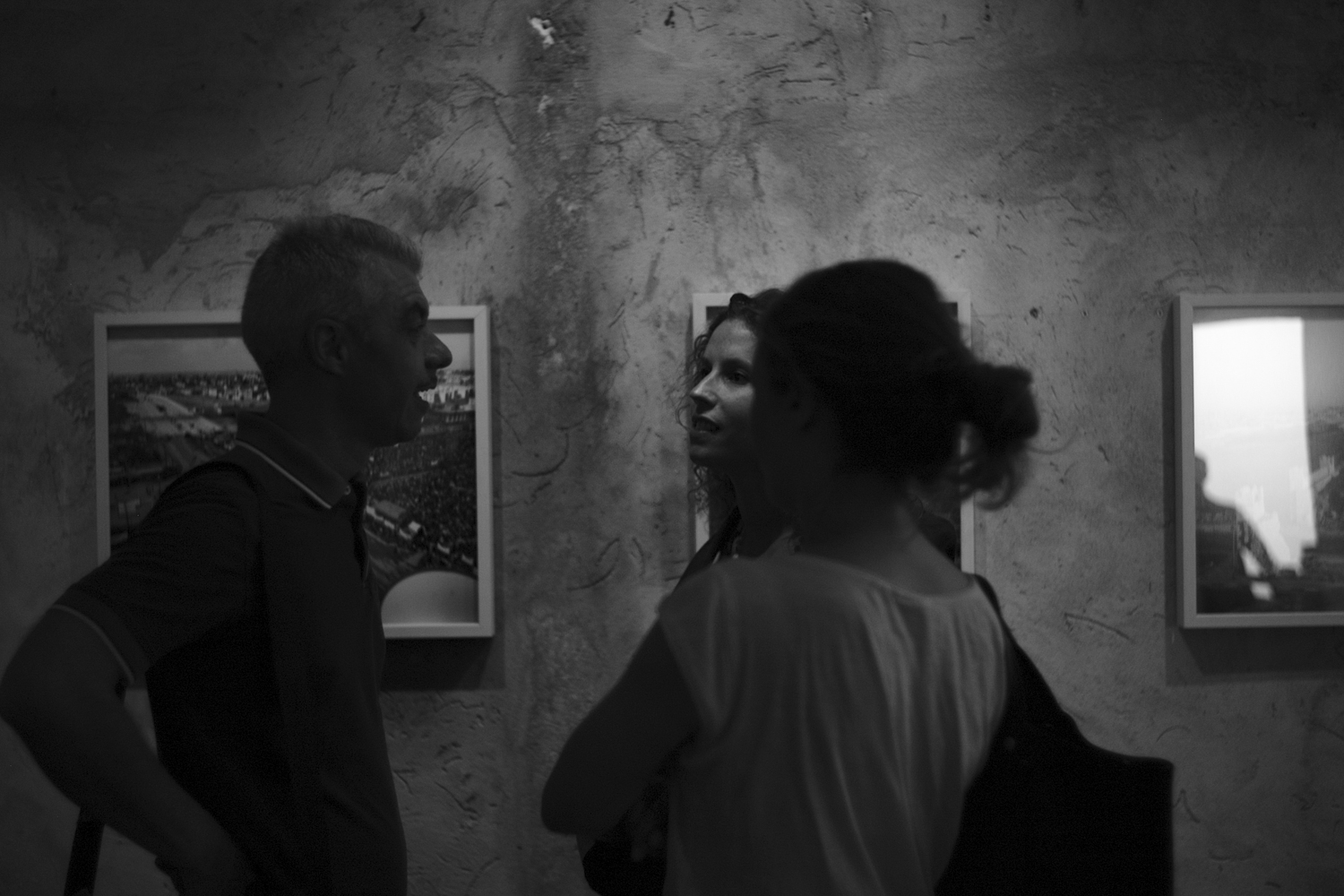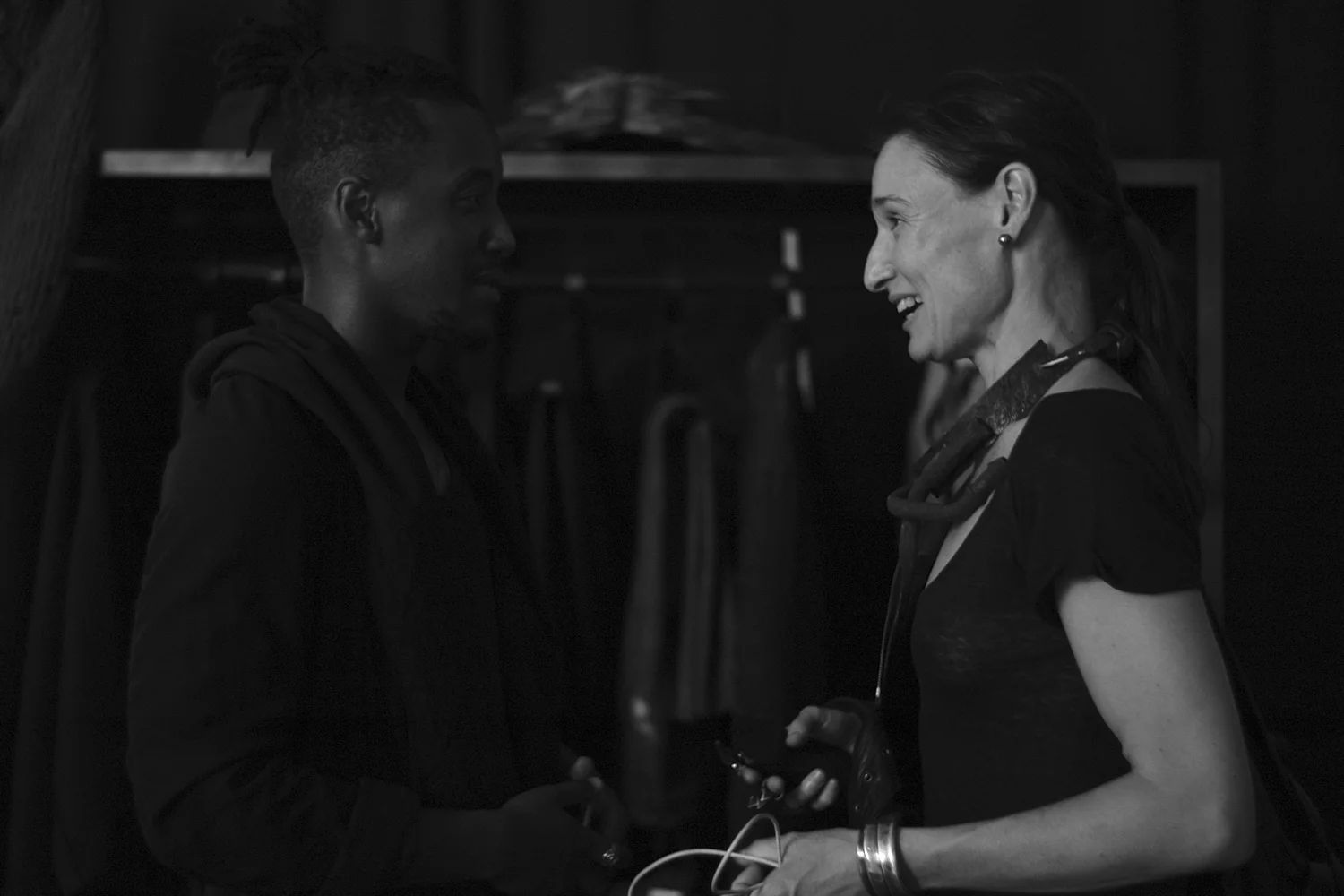SOME/EXHIBITION : VERNISSAGE 'EDOUARD BEAU' TIGRIS & EUPHRATES | LOST TERRITORIES | IRAQ 2012-2013
On Thursday the 18th of June, Edouard Beau presented his immersive installation at SOME/THINGS with sound and photography.
It is in war situation, in its tension, under the sun of Mosul, at Iraqi Kurdistan that Edouard Beau has during some time almost turned into a war photographer. Almost, because this young photographer who had already joined the area to try to understand what and why people he had met in Paris were escaping from there, where they lived in a garden square in the tenth district, does not need a label.
He followed men who entered the professional army to feed their families and who were patrolling, knowing that risk is everywhere, in search of suspects or weapons, even knowing they will not find any in the end. Living with them, close to them, he is finally like them: he does not understand the situation better, nor what he seeks, nor what they want to find. At this misunderstanding meets the ones of the civilian population, of a kid to be questioned in vain, of young people taken in hostage, sitting in the hot sun, of these women who shout after these armed men who invade their home, of this old man who raises his arms and walks to nowhere. This is war, indeed and it is perfectly ridiculous. Violent and unacceptable violence because it makes no sense to anyone in this population. Neither for the photographer who does not try to prove anything, who simply admits that he knows nothing, that his photography is by no means a proof, rather a mix of what he sees and can not decrypt and what he feels as a man.
Edouard Beau is as unpredictable as determined photographer, as free as he assumes his doubts. He showed it in a remarkable way in the documentary that has gone into the same situation and that has been awarded many times and acclaimed. This type of commitment which puts the human - including the most critical and least human situations - in the centre of the subject is part of a tradition Edouard Beau cultivates in its form by appropriating without sacralizing. As a talented cameraman, his way of installing characters in a seemingly basic frame shows a rare accuracy in distance to facts and individuals. It also gives him the opportunity and freedom to move smoothly from color to black and white, from geometry to motion, from a way to portrait in situation to an intense moment of action without showing any contradiction. In this way to just say "I was there, that's what I saw" and to add in counterpoint "do not pull any conclusions," there is a form of liability which claims an adult photography. And perfectly independent.
Édouard Beau (born in 1982 at Nevers) lives and works in Paris.
Édouard Beau practices documentary photography by questioning the human condition, migration and their causes. From Sangatte camp in 2002 to Mosul in 2007 with a Kurdish unit of the Iraqi army, he creates still images and videos snatched on meetings and events. He then installs an analysis time of the chaotic system in order to question our relationship to each other, to medias and the world, to the crossroads of geopolitical analysis, to human commitment and poetic perception. 'Searching for Hassan' was awarded the First Film in FID Marseille 2009 and the Long documentary Jury's Award of Al Jazeera Film Festival in Doha, Qatar 2010. In 2011 he graduated from ENSP Arles. Having escaped the blowing of an improvised explosive device during his stay in Mosul in 2007, he realized in summer 2011 a photographic and video essay on post-traumatic stress of American war veterans and soldiers from Afghanistan & Iraq during an exchange program at the International Center of Photography in New York. In 2012 - 2013 he spent nine months documenting Iraq and its territories, thanks to a grant from the CNAP, Olympus France and the ENSP Arles. In 2014 he directed a photographic and immersive sound installation piece about the memory of the Spanish civil war at la Casa de Velázquez, French Academy at Madrid.
Photography by Minnseo Kim | S/TUDIO
Text by Christian Caujolle







































